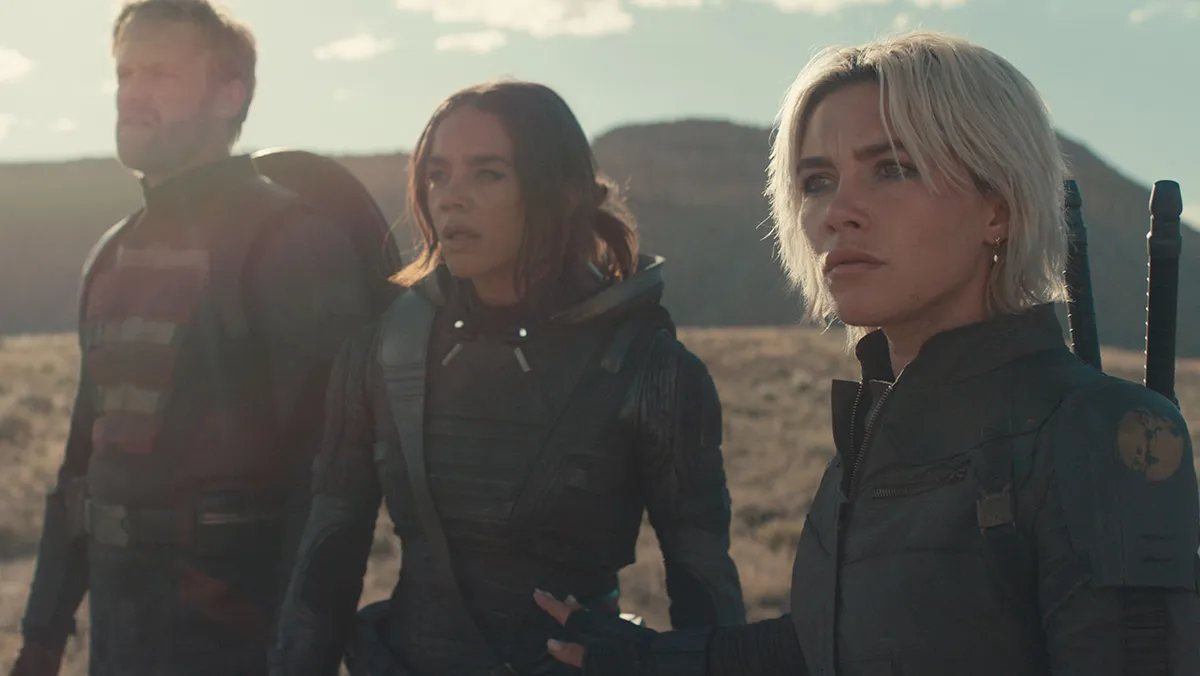
Thunderbolts, directed by Jake Schreier, surprised audiences this past weekend with its unconventional approach and depth of storytelling. The latest entry from Marvel Studios has garnered a positive reception from critics who have been increasingly critical of recent Marvel Cinematic Universe (MCU) films. This reception signifies a potential turning point for the MCU, not merely in terms of box office success, but in how it engages with profound narratives that challenge audience expectations.
The film's impact is subtle yet significant, showcasing that Marvel Studios excels when it highlights underdogs and defies preconceived notions. The ongoing cycle of claims declaring that “Marvel is over!” followed by “Marvel is back!” has become tiresome. In reality, Marvel is a constant presence in the entertainment landscape, much like the comics it draws from, experiencing both peaks and valleys since the launch of the MCU in 2008 with Iron Man.
Expectation plays a crucial role in audience reactions to these films, often influenced by rampant speculation and rumor. However, films like Thunderbolts disrupt these expectations, offering a fresh take that reinvigorates interest in the franchise. The film culminates in the revelation that the team is named "The New Avengers," restoring a sense of camaraderie that has waned since the events of Avengers: Endgame.
While the lineup of characters may differ from their comic book origins, the significance lies in how this twist reshapes the status quo and enhances the upcoming Avengers: Doomsday. This version of The New Avengers draws parallels to Brian Michael Bendis and David Finch’s comic series from 2004, which introduced an unconventional lineup that surprised fans at the time. The previous team included iconic characters such as Captain America and Iron Man, alongside lesser-known figures like Luke Cage and Echo, presenting an unexpected dynamic.
When Thunderbolts was first announced in 2022, anticipation was mixed due to director Jake Schreier's relatively modest background in filmmaking. Fans expressed concerns that the character roster seemed too similar and lacked fan-favorites like Red Hulk and Deadpool. Additionally, there were questions about the absence of Daniel Bruhl’s Baron Zemo, a pivotal character in the Thunderbolts' comic narrative. This hesitance led many to speculate whether the film would merely be a rebranding exercise, akin to a “suicide squad” scenario.
Interestingly, Thunderbolts does mirror the dynamics of a suicide squad, but with a profound twist. The characters, including Yelena Belova, Bucky Barnes, and others, are not controlled by external forces but are instead grappling with their own mental health struggles. The film artfully explores themes of depression and suicidal ideation, presenting a narrative that remains both engaging and thought-provoking.
The early scenes set a tone of impending doom for the characters, particularly highlighted by Taskmaster's fate. Unlike typical superhero fare, the film doesn't shy away from addressing the weight of mental illness. It prompts viewers to contemplate how these individuals navigate their struggles rather than relying on traditional action tropes.
While Thunderbolts contains humor, it does not undermine the gravity of the characters' journeys. Each character's emotional struggle is portrayed with specificity, adding a layer of depth to the narrative. Critics have noted that the film manages to balance deeper psychological insights with the entertaining elements of a superhero movie, pushing the MCU into uncharted territory.
Despite some critiques regarding the film's resolution of mental health issues, Thunderbolts emphasizes the importance of communal support in facing personal demons. The film’s climactic scenes, where characters find solace in one another's company, serve as a powerful reminder of shared struggles. This shift away from the typical MCU villain confrontations introduces a refreshing dynamic in storytelling.
As Thunderbolts redefines the concept of heroism, it also sets the stage for the MCU's future. This team of misfit heroes, characterized by their flaws and co-dependent relationships, offers a stark contrast to the traditional Avengers. The potential for growth and emotional storytelling provides a promising outlook for the franchise.
In conclusion, Thunderbolts not only revitalizes the MCU but also introduces a group of underdogs that audiences may not have initially anticipated. Their unique journey and interpersonal dynamics may just fill the void that has been absent in the MCU for over a decade, promising exciting developments ahead.